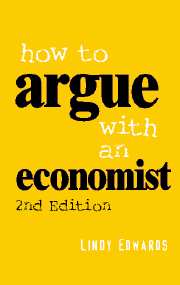Book contents
- Frontmatter
- Contents
- Acknowledgements
- Preface to the Second Edition
- Part I A Historical Juncture
- Part II Getting a Handle on Economics
- Part III Revealing Economic Rationalism's Worldview
- 6 ‘Punters’ versus ‘economic rationalists’
- 7 Contrasting views of human nature
- 8 Contrasting views of how society works
- 9 Constrasting views of the ideal society
- 10 Economic policy and culture
- Part IV Arguing with an Economic Rationalist
- Part V The Future
- Bibliography
- Index
7 - Contrasting views of human nature
Published online by Cambridge University Press: 14 October 2009
- Frontmatter
- Contents
- Acknowledgements
- Preface to the Second Edition
- Part I A Historical Juncture
- Part II Getting a Handle on Economics
- Part III Revealing Economic Rationalism's Worldview
- 6 ‘Punters’ versus ‘economic rationalists’
- 7 Contrasting views of human nature
- 8 Contrasting views of how society works
- 9 Constrasting views of the ideal society
- 10 Economic policy and culture
- Part IV Arguing with an Economic Rationalist
- Part V The Future
- Bibliography
- Index
Summary
Generally, we do not think too much about what it is to be human. What we are like, the point of our lives – except in our sombre moments – slips by like a shadow in the darkness. The issues are only thrown into focus when we hit a different view. Usually it is a conflict of values with someone we know intimately. The partner who only cares about the tidy house, the big promotion and whether the car is a recent model. Or the one who is not ambitious enough, gives too much to charity or spends too much time in the garden. In a moment of clarity we know s/he is not seeing the world the way we do. We are incredulous that they can be so oblivious to reality. These are the worst fights. At their core they are conflicts about human nature and how the world is.
The split between economic rationalists and the wider community sometimes has echoes of those fights with a lover. There is that same sense of exasperation, that those in power are not seeing the world the same way as the rest of the community. As the economic rationalist spiel flies past, it is hard to pinpoint exactly what we are disagreeing about, let alone convince the other side of our view.
The economic rationalists' view
Just as our own outlook on the world is built on ideas about human nature, so are intellectual theories of society.
- Type
- Chapter
- Information
- How to Argue with an EconomistReopening Political Debate in Australia, pp. 52 - 63Publisher: Cambridge University PressPrint publication year: 2007

